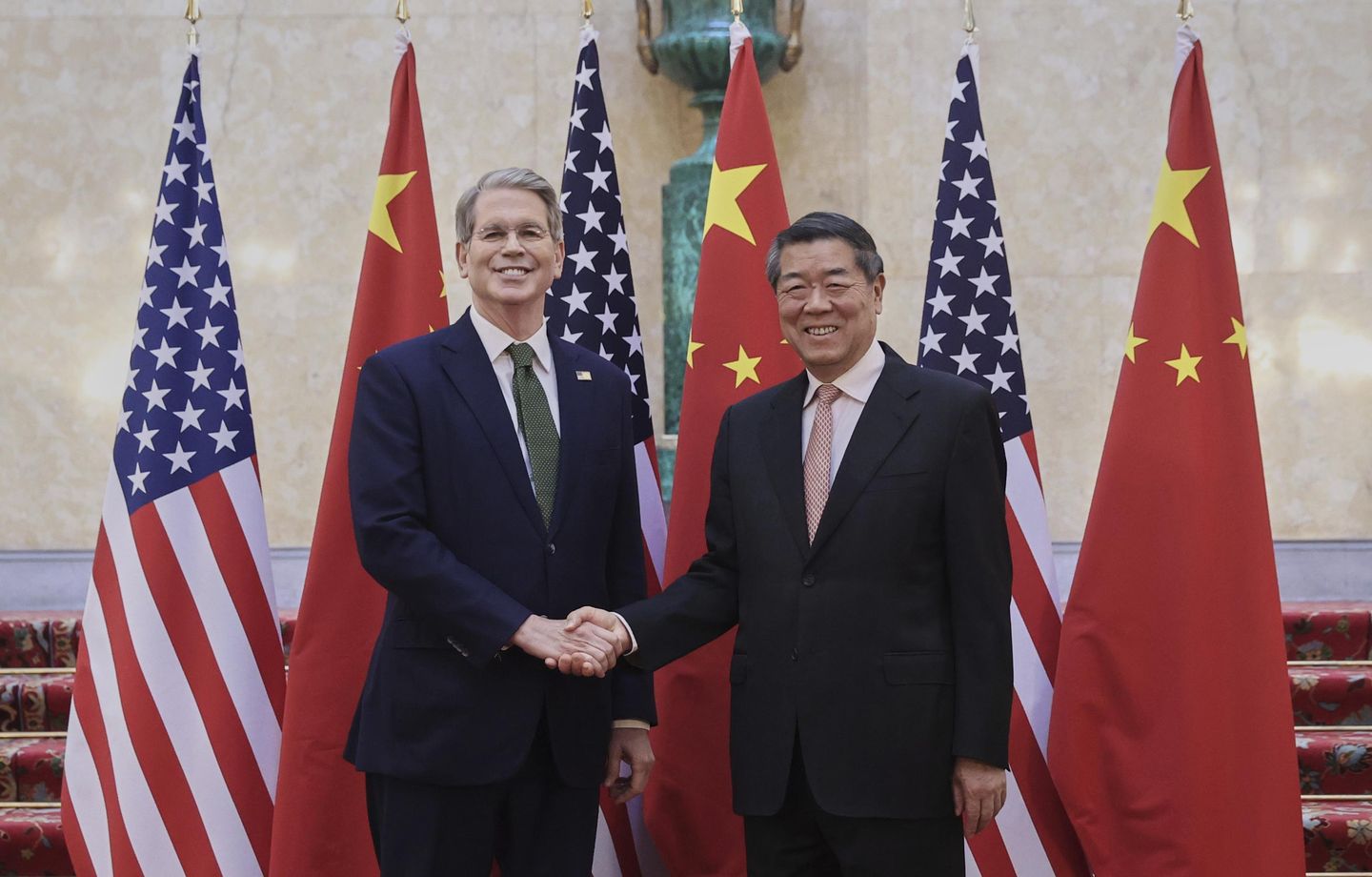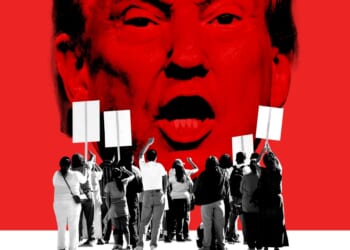
U.S. negotiators said Wednesday they reached a “handshake” agreement to loosen China’s restrictions on magnets and rare earth minerals while allowing Chinese students to attend U.S. universities, setting the table for final approval from President Trump and Chinese President Xi Jinping.
Commerce Secretary Howard Lutnick said the framework built on the foundation laid by May negotiations in Geneva and a recent phone call between Mr. Trump and Mr. Xi.
“President Trump’s got to approve it,” Mr. Lutnick said “The Chinese side has to take that back to their president. Once that’s done, we will be back on the phone together and will begin to start to implement this agreement.”
Mr. Trump filled in lines of the agreement and seemed to approve of it, posting on Truth Social that the U.S. will get much-needed minerals.
“Full magnets, and any necessary rare earths, will be supplied, upfront, by China, likewise, we will provide to China what was agreed to, including Chinese students using our colleges and universities (which has always been good with me!),” he posted in all caps.
Wall Street stocks traded in positive territory Wednesday upon news of the deal and a tame inflation report.
Mr. Trump is eager to reduce a nearly $300 billion trade deficit with China, meaning the dollar amount by which imports from the Asian superpower exceed what the U.S. sells to the Chinese market.
“President Xi and I are going to work closely together to open up China to American Trade. This would be a great WIN for both countries!!!” he said in a separate post.
Treasury Secretary Scott Bessent told Congress on Wednesday the deal will “not only stabilize the economic relationship between our two economies but make it more balanced.”
“The rebalancing of the world’s two largest economies is possible,” Mr. Bessent told the House Ways and Means Committee.
Securing licenses for rare earth minerals from China is the main win for the U.S. in the framework deal.
One of the minerals, samarium, is used in heat-resistant magnets that are critical components of missiles and fighter jets.
The Chinese side will likely get relief from U.S.-imposed export controls on high-tech goods, alongside visas for its students.
While the full details were unclear, the Chinese side echoed U.S. optimism.
“The two sides had a candid and in-depth dialogue, exchanged views in depth on economic and trade issues of mutual concern, reached a principled consensus on the framework of measures to implement the important consensus reached by the two heads of state on June 5 and consolidate the results of the Geneva economic and trade talks, and made new progress in resolving the economic and trade concerns of both sides.” the Chinese commerce ministry said on its website.
Both sides met for two days in London to maintain a weeks-long trade truce. Tensions stem from Mr. Trump’s “Liberation Day” tariff announcement in April.
A trade court recently concluded that Mr. Trump overstepped in imposing sweeping levies on other nations, though an appeals court put the ruling on hold while deeper legal issues were litigated.
Unlike other countries that came to the negotiating table, China retaliated against Mr. Trump’s tariffs by imposing hefty levies on U.S. goods, sparking a trade war.
A de-escalation meeting in May knocked down sky-high tariffs from both sides. The U.S. is charging a 30% tariff on Chinese goods, and China is putting a 10% tariff on American goods that cross its borders.
Mr. Trump said the tariff on Chinese products would be 55%, a level that describes his blanket levy of 30% and a sum total of preexisting tariffs on certain products.
Mr. Lutnick, speaking on CNBC, said he does not expect that tariff level to change.
Looking ahead, Mr. Bessent told Congress the U.S. is fed up with China’s tendency to flood global markets with cheap goods that undercut other nations’ manufacturers.
He said China should focus on domestic demand and other in-house measures to deal with a real estate crisis and other economic problems.
“They cannot be allowed to export their way back to prosperity, which would mean substantial decreases in the standards of living not only for the United States’ working Americans but for working citizens across the world,” Mr. Bessent said.
Some analysts were underwhelmed by what negotiations finalized in London.
“The deal is underwhelming. 55% tariffs on Chinese goods are exceptionally high, will reduce economic growth in the U.S., and create pricing pressures on those goods we import from China,” said Wayne Winegarden, a senior fellow in economics at the Pacific Research Institute. “The deal is, consequently, anti-growth. The resumption of rare earth exports from China is welcome if it remains in place, but it is uncertain that it will be stable. This deal does not, on net, promote an expansion of free trade nor help the U.S. economy.”
















